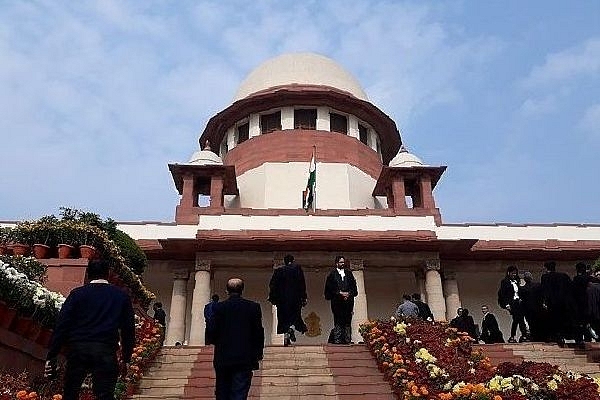
Supreme Court Stays Bombay HC Order Stopping Coastal Ring Road Project In Mumbai, Allows Construction Work To Start
The Supreme Court on Tuesday (18 December) stayed the Bombay High Court judgement disallowing the coastal ring road project to connect north and south Mumbai. The order will allow the project to begin.
A bench headed by Chief Justice S A Bobde and comprising Justices B R Gavai and Surya Kant said that, prima facie, they do not agree with the high court order, and asked the state government to go ahead with the process of reclaiming land to build the road.
However, the bench said that though construction work could start, the project proponent and the contractor would not carry out ancillary development work, like water parks and gardens on both sides of the coastal road, till further orders, reports Times of India.
The SC posted the matter for final hearing in April 2020, which means the contractor can execute substantial work over the next five months.
Earlier in July, the apex court, in a setback to Maharashtra government, refused to stay the Bombay High Court order quashing the Coastal Regulation Zone (CRZ) approval for the coastal road project estimated at Rs 12,000 crore, and under construction by Municipal Corporation of Greater Mumbai, which has engaged private players such as Larsen & Toubro.
Solicitor General Tushar Mehta, appearing for the state government in July, had urged the apex court to lift the stay imposed on the project by the high court.
"If the stay is not lifted, then the monsoon will destroy a major part of the coastal road project," he had contended before a bench headed by the then Chief Justice Ranjan Gogoi.
After the initial hearing, the apex court issued notice to NGOs, who had moved the Bombay High Court against the project. These NGOs claimed the government turned a blind eye on the social and environmental impacts of megaprojects, and commissioned the project in reckless haste, as a consequence approvals were granted without mandatory compliance.
The government contested this argument, stating the project generates large open green spaces for public use which Mumbai extensively lacks.
The Bombay High Court had stopped work on the coastal road project, citing "a serious lacuna in the decision-making process" and "lack of proper scientific study", and insisted on environmental clearance for the project under an Environmental Impact Assessment (EIA) notification.
It reportedly raised the issue of corals despite their "miniscule presence" at Haji Ali and Worli. The court also observed that the project also required approvals under the Wildlife Protection Act, 1972, although, the project has already obtained CRZ clearance from the the Union Environment and Forests Ministry.
(With inputs from IANS)